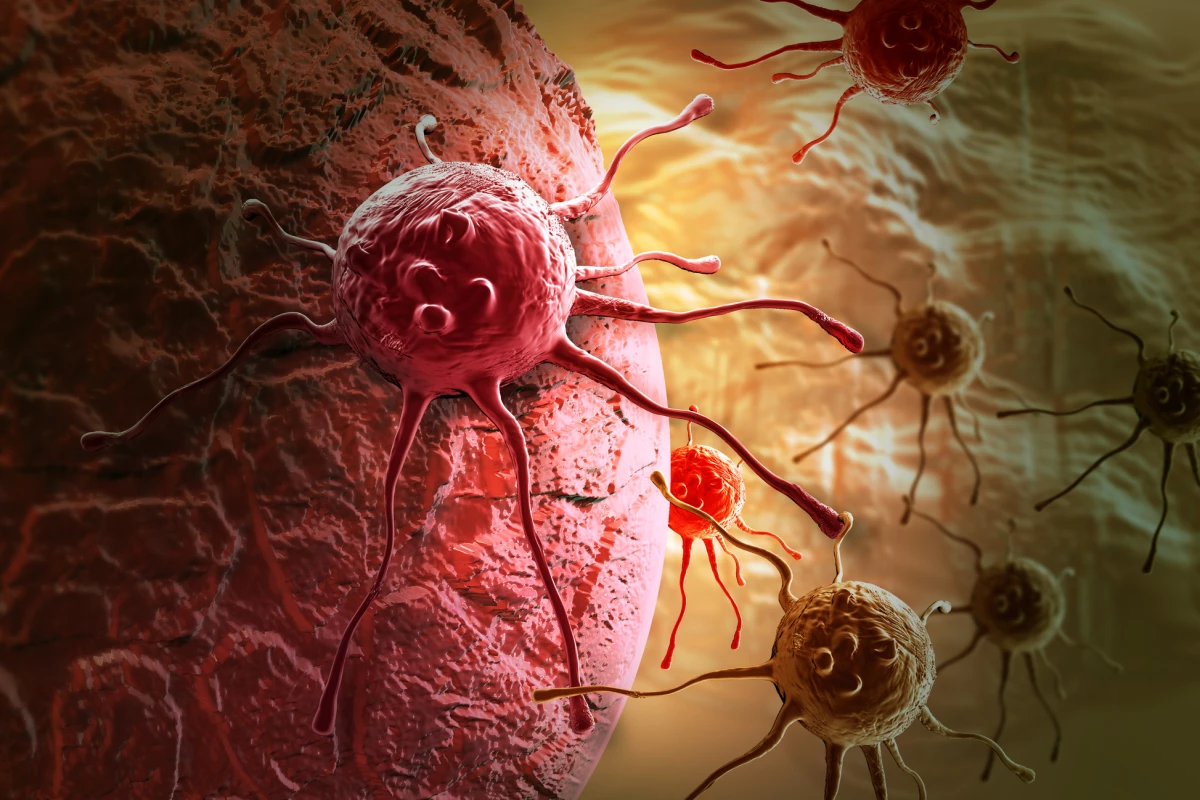A novel cancer vaccine is moving to Phase 1 human trials in the United States after promising results from animal studies showed encouraging efficacy and a robust safety profile. A new study describes the vaccine as producing complete responses in 90 percent of animals when combined with a second immunotherapy drug.
Perhaps the biggest breakthrough in cancer therapy over the past couple of decades has been the development of immune checkpoint inhibitors. These treatments focus on blocking the mechanisms cancer cells use to evade attack from immune cells.
One such mechanism cancer cells can often cleverly highjack to avoid attack from the body's immune system involves PD-1, a checkpoint protein expressed on the surface of killer immune cells. When PD-1 binds with PD-L1, another checkpoint protein found on healthy cells as well as some cancer cells, it essentially serves as a way to tell killer immune cells, nothing to see here and to move on.
PD-1 inhibitors are a relatively new class of drugs that allow killer immune cells to more effectively detect and kill cancer cells. Several first-generation anti-PD-1 monoclonal antibodies have been approved to treat various cancers in recent years. This new therapy, called PD1-Vaxx, is designed to trigger a broader polyclonal antibody response, with hopefully better efficacy than the first generation of checkpoint inhibitors.
This new study, led by researchers from Ohio State University, reports on preclinical testing of PD1-Vaxx in combination with a second immunotherapy treatment. First author on the study Pravin Kaumaya says this new research offers two important insights into how the novel cancer vaccine works.
"First, PD1-Vaxx activates both B- and T-cell functions to promote tumor clearance,” says Kaumaya. “Second, the treatment is targeted to block signaling pathways that are crucial for tumor growth and maintenance. By giving this vaccine in combination with an immunotherapy drug, we are essentially super-charging and specifically directing the immune system to target and kill cancer cells."
The researchers report the combination therapy was tested in an animal model of colon cancer and produced complete responses in nine out of 10 animals. Prior preclinical tests have effectively established a robust safety profile for the vaccine.
In early November the US Food and Drug Administration granted PD1-Vaxx approval to move into Phase 1 human trials in the United States. Similar approval was granted earlier in the year from Australian authorities to commence an arm of the Phase 1 trial there. The upcoming clinical trial will focus on patients with non-small cell lung cancer.
"We are excited to begin testing of this vaccine in the United States to offer new hope to patients with lung and other cancers,” adds Kaumaya. “Reaching this point where we can transition our findings from the lab to the clinic speaks to the perseverance and dedication of Imugene's clinical and research team – including our research lab staff at Ohio State – to build on the clinical and commercial potential.”
The new research was published in the journal Oncoimmunology and the video below offers a more detailed explanation of how the novel cancer vaccine works.
Source: Ohio State University




